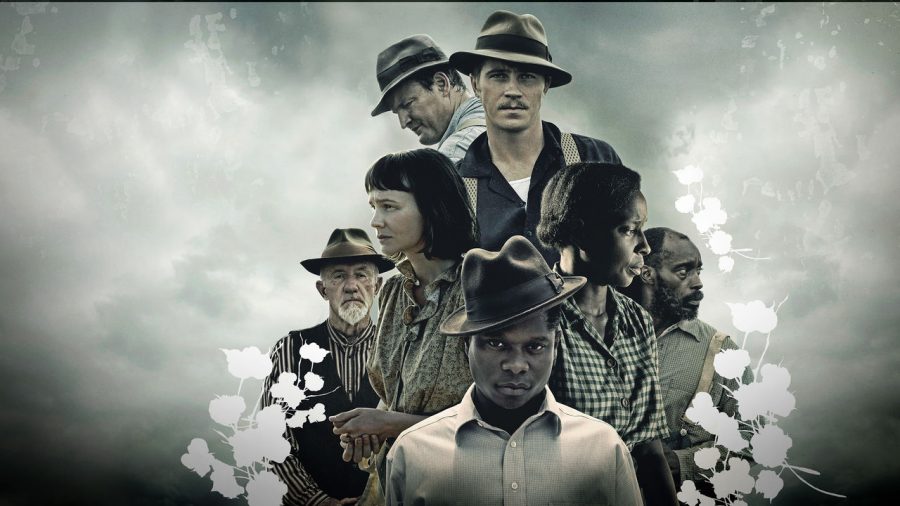“Silence, oppression, fear. It would take an extraordinary man to beat all of that.”
Mudbound on Netflix is not the ideal weekend watch, especially when you’re looking to watch something light and breezy. But, it definitely makes an impact. It’s long, has its moments of abstract randomness, but at that same time, paints a disturbing picture of the America that was during the World War II.
Taking on issues like racism, the war, Post-Traumatic Stress Disorder (PTSD), women trying to break the proverbial glass ceiling and dysfunctional relationships, it’s hardly surprising that Mudbound is predicted to be one of the Oscar contenders. The Academy of Motion Picture Arts and Sciences Academy has been repeatedly accused of whitewashing the awards function, but every now and then a story that delves deep into representation, diversity, and inclusion manages to secure a place in the coveted list. Mudbound could be this year’s pick.
Based on the book written by Hillary Jordan, the period drama adapted by Dee Rees is unbiased when it comes to focusing on characters. Each character has been given quite a thought, their background, their body language, and their transformation (if any) progresses along with the narrative.
Instead of just showing the actions of a central character, Rees ensures that, particularly for the women, an internal monologue or a dialogue is always ensuing while they perform menial tasks and duties.
***
The film, much like the title, begins with mud. Henry McAllan (Jason Clarke) and his younger brother, Jamie (Garrett Hedlund), are digging deep in order to bury their dead father, Pappy (Johnathan Banks). Dark skies shroud the expansive farm in the Mississippi delta, so the brothers dig faster before the storm sets in. Six feet in, the brothers realise that the area they dug is actually a former burial site of a slave.
“That settles it. I ain’t burying my father in no slaves’ grave,” declares Henry. He, however, gives in, a massive indication of the kind of person he is – indecisive, unable to think on his own, but not necessarily submissive.
Given that the two men aren’t able to lower the coffin, Henry seeks Hap’s (Rob Morgan) help, the Black tenant-farmer. There’s tension in the air, with Henry’s wife, Laura (Carey Mulligan), discouraging him from approaching Hap.
The scene shifts to the past, on how Henry and Laura met, got married, and made a family, she enjoying her domestic life while he seemed visibly satisfied with the status quo.
With Laura’s monologue, we learn that she isn’t necessarily happy with him. Just plain comfortable and she’s actually okay with it, even though, briefly, she’s seen looking happier with Henry’s brother, the charming actor who later goes on to enlist for the World War II.
While Henry is a little rough around the edges, Laura likes to read, play the piano for she views it as the only thing that keeps her sane, and she isn’t hesitant to speak her mind when required. She doesn’t fear Henry, just wants to avoid any conflicts, while still, over the years, developing a slow resentment towards him and his inability to grow a spine.
Years later, with Jamie absent, Henry, Laura, Pappy, and their two kids move to a rickety old farm, a far cry from their comfortable abode from before. It had been Henry’s dream to own a farm and grow his own crops. While things don’t go as planned, they try to make things work, with Laura’s commendable support even though she is not considered to be an equal partner in the marriage.
Hap and his family, meanwhile, have recently bid good-bye to their eldest son, Ronsel Jackson (Jason Mitchell), who enlists as a sergeant in Europe. In Mississippi, one of the states of the US, racism is flaunted like a medal by the entitled White folks, as Hap rightly puts it about his family and ancestors, “They worked this land all their life. This land will never be theirs. They work until they sweat it. They sweat it until they bleed. They bleed until they die.”
While farming life occupies the McAllans and Jacksons, the return of their respective war heroes – Ronsel and Jamie – displaces the monotony that these two families are used to.
Ronsel in Europe had a lover, a white German woman, and enjoyed how he wasn’t seen as somebody different because of the colour of his skin. He was a war hero. Life there was a change that he craved while being cooped up with farming duties back home, and so, with each passing day, he cherishes his last few days in the continent. When back home, he dawdles, restlessly walks around, furious about how in his own hometown he’s met with hostility and hatred.
He says, “Over there, I was a liberator. People lined up in the streets waiting for us. Throwing flowers and cheering. And here, I’m just another nigger pushing a plow.”
Jamie, who watched his comrade die while in the air, returns home with PTSD. He drowns himself in alcohol throughout the day and suffers nightmares of watching his friend die over and over again. In Ronsel, he makes a friend, his comrade in arms. The two develop a friendship, where they talk about their days at war, of coping, and of the loss they’ve endured. Their kinship helps each other from coming out of their shells, something which their families fail to understand.
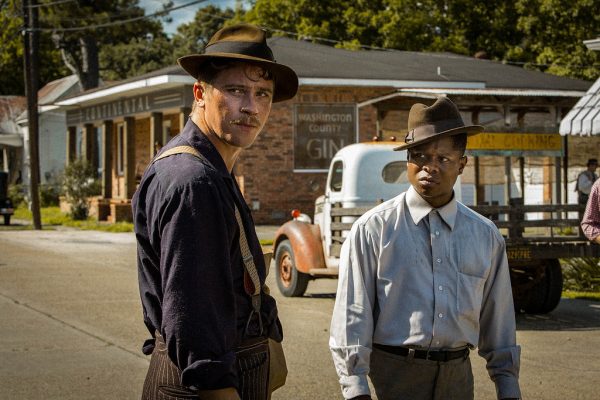
Mudboundd
***
There’s a defining moment in Mudbound when the deep-seated racism is portrayed, a scene almost too difficult to watch. Ronsel, who has never stopped his sharp tongue from voicing out his remonstrances on being treated differently in his hometown, is lynched by the town’s Ku Klux Klan spearheaded by Jamie’s Pappy. Beaten and tortured after it is discovered that he has fathered a child with a white woman in Germany, Ronsel’s fate ends up lying in the hands of Jamie, his friend who fights hard for him to be saved.
Recommended
The lynching is enough to send shivers down one’s spine, the blood curdling screams of pain adds to the brutal depiction of how people of colour is viewed as an abomination.
It also throws light on how the extremist group functioned in the 40s, where their idea of “purifying” America wasn’t condemned until decades later. Or has it, really? The lynching scene is also a heart wrenching reminder of today, of individuals as young as 18 harbouring white supremacist beliefs, upholding what the KKK believes in that eventually culminated in the horrifying Charlottesville March.
***
In the over two-hour long film, the women are shown much stronger than their male counterparts, women who have a mind of their own, and refuse to be submissive.
Laura in the lead is aware of her worth, knowing pretty well that she’s far more, for the lack of a better word, qualified and sure of herself when compared to her husband. He perhaps wants to control her but cannot seem to match up to Laura’s self-confidence.
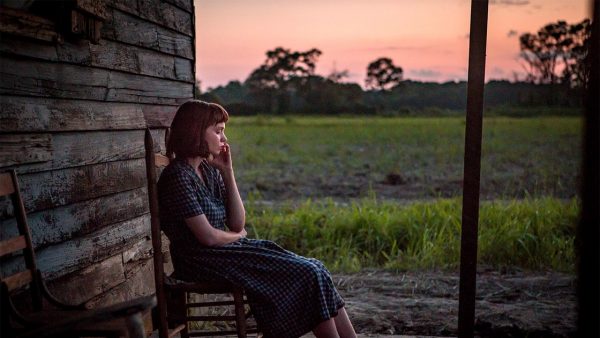
Via Indiewire
Even when she suffers from a miscarriage, Laura falls into a pit of self-loathing and depression. But she manages to get a grip of reality and portrays having a clarity of what is right and wrong, a trait that is uniformly ambiguous among the rest.
Florence Jackson (Mary J Blige), Hap’s wife and who works as a help at the McAllans’, is made of sterner stuff. When Ronsel is sent off to the war, she doesn’t look back believing that it may bring bad luck. But in her mind, in every moment of the day, she thinks of him, and isn’t too guilty when she admits in her monologue that she prays for her eldest born much more than she prays for the rest of her family.
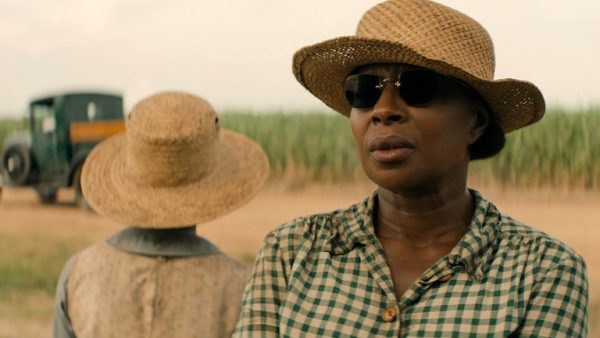
When the expenses keep mounting and she’s offered a job, she makes a decision without feeling the need to consult her husband. She is also the first one to sense about Ronsel’s chaotic state of mind after his return, and kept it together even after his lynching, repeating the words:
“I held his heartbeat in my hand. All the time he was gone I only pray for him.”
Another woman, Vera (Lucy Faust), whose role isn’t expanded much but is another example of a woman who stands up against abuse even though it doesn’t quite fit in with the story. She walks in to Laura’s house, heavily pregnant and holding a knife. “You have to take me to town or I’ll kill him,” she says.
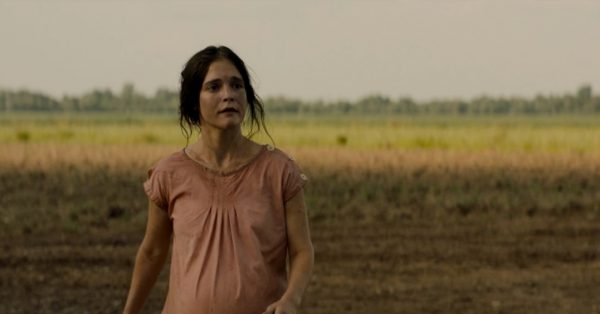
Her story is perhaps the worst, living as a tenant in the farm. With her husband having lost his job, they’re unable to make expenses meet. But that’s not the worst of her problems. With two daughters, Vera cries when Laura isn’t able to help her, telling her that her husband has started abusing their younger daughter. Helpless, she cries but wipes them away and takes vengeance, even though it costs her dearly.
***
Mudbound, as a story, intrigues little. It’s left to the characters to take forward the stories, set during a depressing time with nothing but haunting tales to tell.
